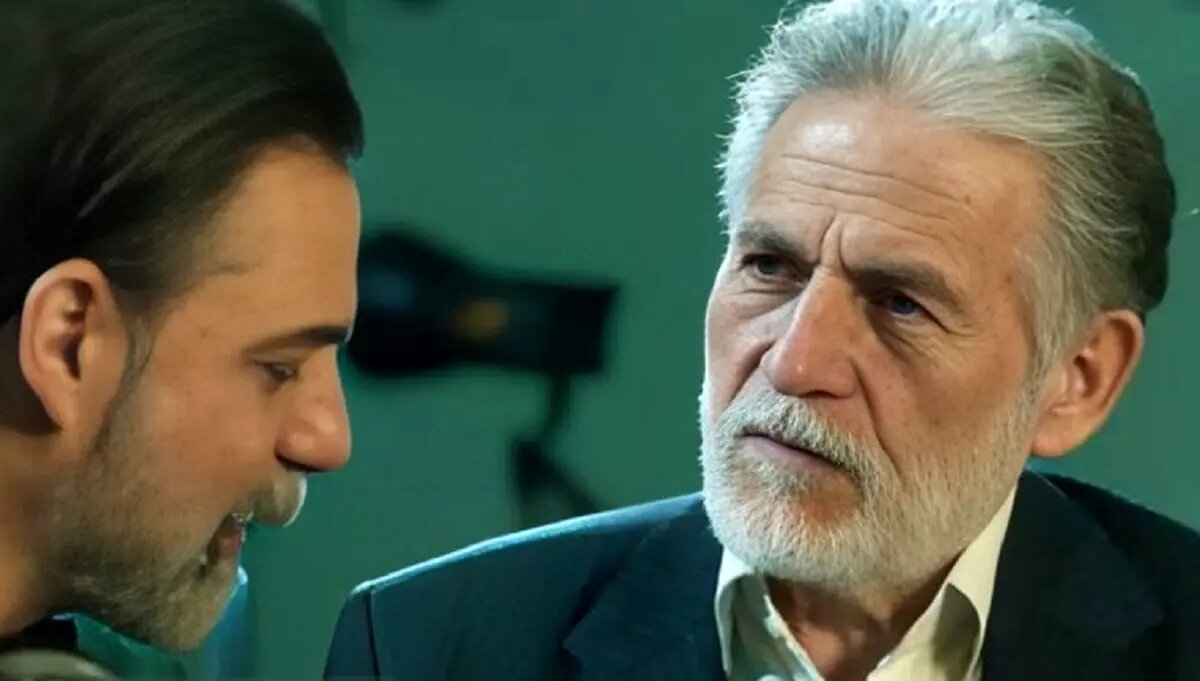Prophets were also capable of making mistakes, let alone teachers!
LoghmanMadayen – Iranian Film Critic

Exclusive to Cinemadrame, Loghman Madayen, a film critic, wrote about the criticism directed at the Tehran series Af’ei:
Although I do not intend to interfere in a matter where the creators of a project have remained silent and speak about the rights they should be demanding, I felt it necessary to approach the complaint filed against the Af’ei Tehran series from a different perspective.
It is reported that this complaint was filed to defend the dignity of the teacher, and the way it was expressed made it seem as though, God forbid, teachers are infallible. Therefore, I felt compelled to say, O political figures! Ignorant scholars! Teaching is a profession of prophets, but teachers are not infallible! Just as all the prophets did not attain the infallibility of the Prophet Muhammad (PBUH).
Answer me this: Was Moses, the Prophet of God, one of the greatest of the prophets, infallible? Did he not make mistakes? Was it not that his hands became stained with the blood of a young man, and God forced him to seek forgiveness? And was it not that when he accompanied the Prophet Khidr (AS), he lacked patience, and as a result, Khidr (AS) saw that Moses (AS) was in a different world and could not endure, and he was deprived of continuing with him?
Let us turn to the Prophet Jonah (AS) when he became weary of the disobedience of the people and, in anger, cursed them and neglected his duties. Did not God discipline him?
So why do you not see these clear signs? Why do you not reflect on the divine verses? I want to answer you with a higher authority, as the Prophet Baqir (AS) says, so it may be beneficial. Just as Prophet Jonah (AS), in the capacity of a prophet, did something that was unbecoming of the teacher of humanity in a moment of anger and cursed the children of humanity, and was punished by God, you must understand that on lower levels, if a teacher in a moment of anger speaks harshly or curses the children of the nation, there must be a higher authority to bring the teacher to account for their words.
If Moses (AS) lacked patience and was deprived of accompanying Prophet Khidr (AS), we understand that on a lower level, if a teacher in the process of educating children, which is a divine path and considered an act of worship, lacks patience and does not have enough endurance, they should be deprived of this sensitive task.
If Moses (AS) lost control and resorted to physical violence, which led to a collective reaction, and he had to repent and seek forgiveness from God, it teaches us that when a teacher loses control and commits physical violence, it is the collective responsibility to react so that the teacher acknowledges their mistake and repents. Only then can their repentance be accepted by God with the people’s approval.
So, once again, in this age of program-centered politics, we must lament: Why do you hold Quran recitation competitions with the best voice? You give warnings in silence, but we still demand, has not the Holy Quran said that these verses are not poetry and Muhammad (PBUH) was not a poet? So, we conclude that the Quran is not a song that we should hold academies for, but a guide. And the question arises: If we read a doctor’s prescription in a beautiful voice, will it cure us? So, how do you expect to bring the Holy Quran, which is the remedy for mankind, to life through voice and tone academies? You may argue that during the time of the Prophet Muhammad (PBUH), Quran recitation was effective, and I respond that at that time, Muhammad (PBUH) was there to guide the people so they could understand the profound concepts of the Quran.
Now, we wish there were enlightened figures like Talaghani (RA) to lead us to the depths of the words of God.
This shame is on you, those who shout about the unity of the Islamic Republic of Iran, but when it comes to implementing God’s laws, you resemble the verse in Surah An-Nisa, verse 150, which says: “We believe in some and disbelieve in others.” You implement what you like and ignore what you don’t. Here, in our Islamic society, usury takes root, yet you consider the banking system in your so-called infidel countries as Islamic. Teachers struggle through many hurdles to enter your educational system and step into the path of teaching, but often the educational staff are lacking even the most basic psychological health.
Our question to you is clear: If the divine verses are not flourishing in earthly life, what is the difference between our Islamic system and the Umayyad rule? Is the status of the educational staff higher than that of some of the prophets, whom God punished, but you turn a blind eye to the actions of some of your educational staff?
In a society where the Ministry of Health reports 21 million people, or 30% of Iran’s population, suffer from mental disorders, and the spokesperson for the Ministry of Health summarizes the issue by saying that one in four Iranians has such disorders, do you still insist that the educational staff are infallible? A hard-working sector that must spend their time and nerves for little pay.
So, let me reassure you, neither military personnel, nor security forces, nor clergy, nor judicial authorities, nor even teachers are infallible. If they had acquired infallibility, there would be no need for special courts and monitoring organizations to deal with crimes committed by any sector.
Even parents, in advanced societies, if they fail to fulfill their duties properly, face the intervention of social police, which can go as far as depriving them of custody. But in our country, it is preferred that social police focus on mandatory hijab rather than addressing the harm caused by neglected children and other social crises.
So let us be honest and stop deceiving the public. Our generation grew up in your educational system and became victims of its flawed structure.
For example, when you took students under 15 years old to the Museum of Remembrance, the former SAVAK torture center, and explained the process of executions during the previous regime, and one of the students was chosen to act out the execution by hanging, resulting in the child suffering from psychological trauma for a long time, or when you took them to shooting ranges and they were forced to crawl in the dirt and rocks to prove the authorities’ power and to endure physical harm—these experiences need to be counted.
I will also speak about a teacher in elementary school who used to beat all of his students, causing bruises, and later it was discovered that his own child had suffered from spinal injuries due to his mistreatment, which led him to be unable to tolerate healthy children.
I mention these to point out that you cannot blindly defend your educational staff. The people know well who is worthy of respect and who is sick.
However, in defense of the art’s sanctity, I want to remind the judicial authorities who react to every film and series that this approach leads only to the destruction of artistic talent. The Iranian film and series industry, despite the lack of the multi-million-dollar budgets of Hollywood, has found its place on the global stage. But in the same America, when films are made criticizing Freemasonry, the global order, the judiciary, the security forces, the military, the police, healthcare, or even ethnic groups, no one attacks them.
I don’t know if this notice still exists, but many years ago, a short note was written on the U.S. security services’ website stating that “Our reality is different from what you see in films,” and they left it at that. I hope you learn from this capacity for critical reception and increase your tolerance. When the political atmosphere shifts, and you invite previously banned figures to the media for debates, and when you invite artists from abroad to return and work, raise your tolerance level to prevent the growing film and series industry from being destabilized. Don’t let us go back to the era of Said Imam who, because he couldn’t tolerate the media, isolated journalists and led to widespread emigration. Soon after, Persian-language media emerged abroad, and the public opinion and the country suffered from it for years. Don’t let artistic freedom become unsafe, so that artists are driven away to a place where nothing can be done to rectify it.
Peace be upon those who follow the guidance.







